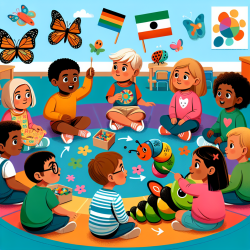Unlocking the Power of Holiday Clubs for Parental Wellbeing
As a speech-language pathologist, I am passionate about using data-driven insights to create positive outcomes for children and their families. A recent study titled "Examining the relationship between child holiday club attendance and parental mental wellbeing" offers valuable insights into how holiday clubs can enhance parental mental wellbeing by reducing social isolation. This blog explores the study's findings and how practitioners can leverage these insights to improve their practice.
The Study: Understanding Holiday Clubs and Parental Wellbeing
The study evaluated 17 holiday clubs in North East England, focusing on their impact on parental mental wellbeing. The research utilized the Warwick-Edinburgh Mental Wellbeing scale to measure changes in parental wellbeing. The results were promising, indicating that reducing social isolation through holiday club attendance significantly improved parental mental wellbeing.
Key Findings: The Role of Social Connections
The study highlighted several benefits of holiday clubs, including:
- Expanding access to food
- Reducing social isolation and building relationships
- Promoting improved child behavior and structure
- Encouraging childhood activities and engagement
Among these, reducing social isolation emerged as the most significant factor contributing to enhanced parental wellbeing. Parents reported feeling more connected and supported, which translated into better mental health outcomes.
Implications for Practitioners
For practitioners working with children and families, these findings underscore the importance of fostering social connections. Here are some actionable steps practitioners can take:
- Encourage Participation: Advocate for holiday club attendance as a means to reduce social isolation and improve mental wellbeing.
- Facilitate Social Interactions: Create opportunities for parents to connect with each other during holiday club events, fostering a sense of community.
- Promote Inclusivity: Ensure holiday clubs are accessible to all families, particularly those from minority backgrounds who may benefit the most.
- Conduct Further Research: Encourage further exploration of the relationship between holiday club attendance and parental wellbeing, particularly in diverse populations.
Conclusion: The Broader Impact of Holiday Clubs
The study's findings highlight the broader impact of holiday clubs beyond addressing food insecurity. By reducing social isolation, holiday clubs play a crucial role in enhancing parental mental wellbeing. As practitioners, we have the opportunity to leverage these insights to create supportive environments that foster social connections and improve outcomes for children and their families.
To read the original research paper, please follow this link: Examining the relationship between child holiday club attendance and parental mental wellbeing.










